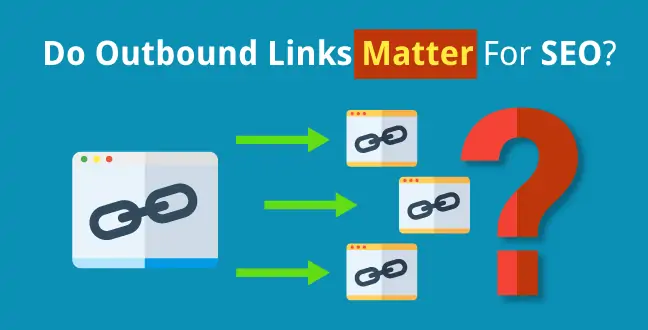Outbound Links: Power of External Connections in SEO
In the ever-evolving landscape of search engine optimization (SEO), links play a significant role that is often underestimated. While much attention is given to inbound links, commonly known as backlinks, external links are equally crucial for a well-rounded SEO strategy. Explore the world of outbound links, their importance, best practices, and how to leverage them to enhance your website’s SEO and user experience.
1. What Are Outbound Links?
Outbound links, also known as external links or outgoing links, are hyperlinks on your website that direct users to external web pages on other domains. These links connect your content to external sources and are an integral part of the web’s interconnected nature.
2. The Significance of External Links in SEO
External links hold several key benefits for your website’s SEO strategy:
- Credibility and Authority: By linking to authoritative sources, your website gains credibility and trust in the eyes of both users and search engines.
- Relevance and Context: external links provide context and relevance to your content, making it more informative and valuable to users.
- User Experience: Offering links to additional resources enhances the user experience by providing more in-depth information and diverse perspectives.
- SEO Relationships: Building external links can establish relationships with other website owners and may lead to valuable inbound links in return.

3. Types of External Links
There are two primary types of external links:
- Dofollow Links: These links pass SEO value to the linked page. They indicate to search engines that you trust and endorse the linked content.
- Nofollow Links: Nofollow links do not pass SEO value. They are used to prevent search engines from following the link to the linked page. Nofollow links are often used for sponsored or user-generated content to comply with search engine guidelines.
4. Outbound Link Best Practices
To harness the power of external links effectively, consider the following best practices:
- Relevance: Ensure that external links are relevant to your content and provide additional value to your audience.
- Quality Sources: Link to authoritative, credible sources to enhance your content’s trustworthiness.
- Anchor Text: Use descriptive and contextually relevant anchor text for your external links.
- User Experience: Consider the user experience by opening external links in a new tab or window to keep users on your site.
- Nofollow Tags: When linking to paid content or user-generated links, use nofollow tags to comply with search engine guidelines.
- Avoid Overloading: Don’t overdo external links, as excessive links can distract users from your content.

5. The Impact of External Links on SEO
Links can influence your website’s SEO in various ways:
- Credibility and Trust: Linking to authoritative sources boosts your website’s credibility and trustworthiness.
- Relevance and Context: links add relevance and context to your content, helping search engines understand your topic.
- User Experience: Enhancing the user experience by providing valuable resources can reduce bounce rates and increase user engagement.
- Inbound Link Opportunities: Building links can lead to reciprocal relationships, potentially resulting in inbound links from other websites.
6. Common Myths About External Links
There are a few myths and misconceptions about links that need to be debunked:
- Links Harm SEO: This is false. High-quality, relevant links enhance SEO and user experience.
- Links Leak SEO Juice: While links do pass a small amount of SEO value, the impact is minimal, and it’s often offset by the value they add to your content.
- Nofollow Links Serve No Purpose: Nofollow links are valuable for linking to paid content or untrusted sources without affecting your website’s SEO negatively.
7. Balancing Outbound and Inbound Links
While links are essential, maintaining a balance with inbound links is key. Inbound links from authoritative sources also contribute to your website’s SEO success. Striking this balance ensures a well-rounded and credible online presence.
In conclusion, outbound links are a powerful and often underutilized tool in the world of SEO. By understanding their significance, adhering to best practices, and integrating them into your content strategy, you can enhance your website’s credibility, relevance, and overall SEO performance. Links contribute to a richer user experience and build valuable relationships within the digital community. Embrace the art of outbound linking to create content that not only informs and engages but also strengthens your website’s position in the competitive online landscape.


